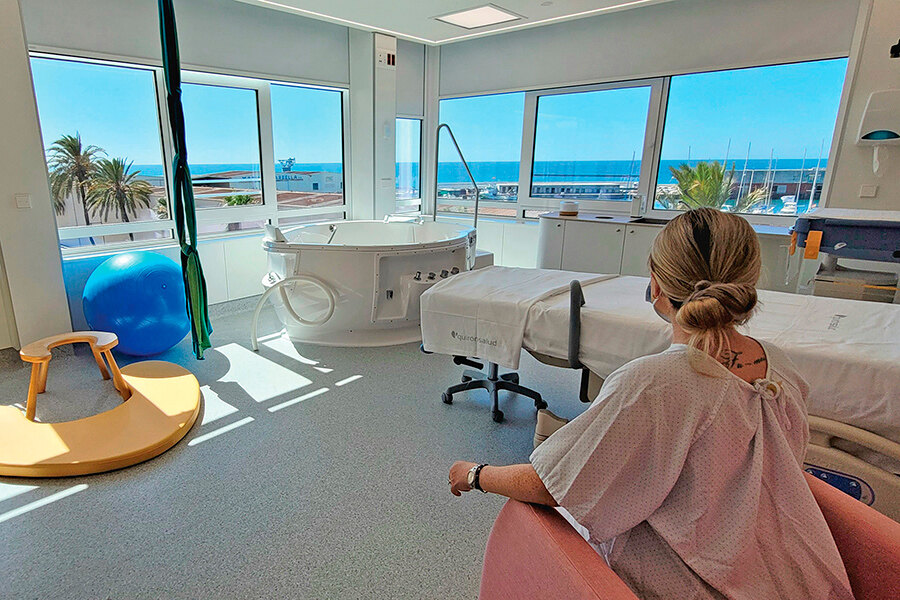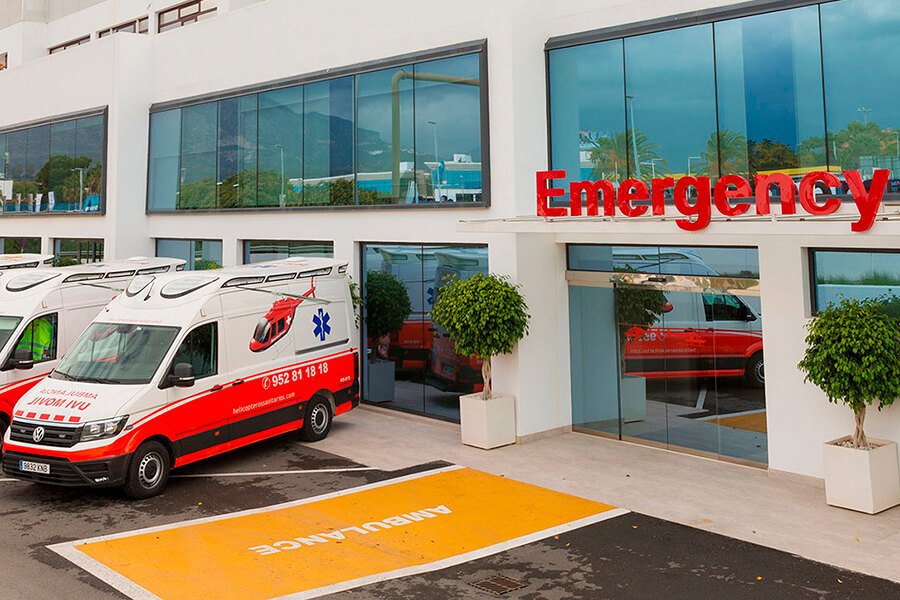Like what you read?
Subscribe to our newsletter for engaging articles, exclusive content, and the latest updates.
One thing you don’t have to worry about when moving to the Costa del Sol, is the quality and accessibility of healthcare.
· 7 min. read

In the first (and last) serious ranking of the world’s healthcare systems, carried out by the WHO in 2000, Spain was listed in overall seventh position.
In the category of performance alone (quality of healthcare), Spain rises one place, while the US falls from 37th overall to 72nd on performance, the UK from 18th to 24th and Ireland from 19th to 32nd. Considering, for example, that Morocco’s health system (29th place overall, 17th place on performance) was ranked higher than many of the rich nations such as the US, Canada and Denmark, it is hardly surprising that pressure was applied to prevent any further WHO rankings being published. No further comment is needed on the quality of care provided in Spain.
It should be pointed out, however, that other healthcare indices rank Spain much lower, although still in the top twenty in the world, and dental care is not free. Few reliable sources dispute the fact that Spain has the most efficient system in Europe.

The quality of healthcare on the Costa del Sol is markedly superior to other parts of Spain as we will see below.
We will also take a look at six of the country's best hospitals, located in Marbella and Estepona, and give an overview of Spain's public and private healthcare options.
This general hospital, built in 1993, managed by a public company on behalf of the Andalucian Health Service (SAS) and located just a few kilometres east of Marbella centre along the main coast road, is one of the best in Spain.
As public hospitals go, it is also one of the most foreigner-friendly in the country, given that the 15 percent or so of its patients who do not speak Spanish are well catered for by some English-speaking medical staff and a small army of voluntary interpreters. A prestigious Spanish health magazine listed it as the Best Hospital in its Class in 2017.
There are approximately the same number of hospital beds in Spain as in the UK (less than half the number as France), and the Costa del Sol hospital has about 400 of them. But it is in its comprehensive training and research facilities that this hospital really stands out from the rest.
Despite the large outpatients department and 24-hour emergency department, what could be a serious seasonal problem has been well sorted out. To give one example, the average number of emergencies increases from about 150 to 360 each day over the summer period, but the hospital still runs smoothly.
The cost of parking was an issue when the hospital first opened its doors, but it is now free, although limited. Numerous bus service timetables are available as well.

This 66-bed hospital, right in the heart of Marbella, belongs to the Quironsalud Hospital Group, Spain’s leading private group with a network of 20 hospitals and an extensive network of health centres throughout the country.
Apart from general hospital services such a 24-hour emergency department, it offers an impressive list of 32 specialities, including cosmetic surgery and non-surgical aesthetics, dental care, stem cell therapy, hair transplant, fertility treatment and rehabilitation.
The hospital clearly caters to high-end patients willing to pay for extra services such as personal escorts, private nurses and those with special food requirements, while flights, visas, financing and insurance coordination can be arranged by the hospital on demand. It also has a reputable research and development department. But what makes it stand out from all other private hospitals in Spain, apart from its quality of care, is its location, right above the old fishing port of Marbella with all rooms having views of the port, the beach and the Mediterranean beyond.

This prestigious 39-bed general hospital, with full 24-hour emergency department and outpatient facilities, is part of the international Hospiten Group of 20 private hospitals in Spain, Mexico, Central America and the Caribbean, catering to more than two million patients each year. It is located on the main A7 coast road about two thirds of the way from San Pedro to Estepona town.
All the group’s hospitals are equipped with the most up-to-date technological innovations and staffed by recognised top professionals in their specialities. The Estepona hospital was the group’s first in mainland Spain, the original being in the Canary Islands.
Specialist medical services include cardiology, traumatology and orthopedic surgery, chiropody, maxillofacial and oral surgery, facial esthetics and more.
Located in the centre of Marbella, with more than 100 highly trained medical professionals, this clinic offers a wide range of treatments, specialising in 36 different disciplines. It’s location, right beside the Paseo Marítimo, makes it especially attractive to both patients and their visitors. The centre is also widely recognised for the quality of its minimally invasive eye surgery.
Located on the N-340 west of Marbella town, the HC Marbella is an exclusive, reputable private hospital set in beautiful surroundings close to the beach. It has 12 exclusive rooms, five consulting rooms, a high-tech operating theatre, a physiotherapy centre and more than 30 medical specialities. Of special interest is its exceptional Advanced Oncology Unit.
This is one of the leading private hospitals on the Costa del Sol, situated in Benalmádena. It has 122 rooms on three floors, 11 of which are suites, while patients are looked after by a team of more than 650 professionals, 250 of whom are nationally and internationally renowned doctors. The range of specialities on offer is wide and varied, with its Cancer and Cardiology Units recognised for their excellence throughout the country.

No article about healthcare on the Costa del Sol is complete without mentioning this long-time service. Since 1988 they have provided a 24-hour medical home doctor service with no restrictions on age or prior condition, unlimited assistance and transfers to hospital when needed. They are a 24-hours-a-day, 365-days-a-year healthcare service, with a fleet of mobile intensive care units, Specialist Doctors and ambulances equipped with the most advanced medical technology and mobile electro-medical equipment. No waiting times, no hidden costs, no excuses: for a relatively modest fee, all your worries are taken care of quickly.
The Spanish healthcare system is funded by social security payments made by employees and self-employed workers, with approximately 90 percent of Spaniards paying into the system. Certain other groups, such as pensioners and those receiving benefits, can register for healthcare as official residents. There are some specialist medical procedures not covered by the system, and a small proportion of the cost of medicines purchased in a pharmacy is paid for by the patient.
Quality of care, especially with regard to waiting lists, varies slightly from region to region. Those not covered by state insurance or the EHIC (European Health Insurance Card) are advised to take out private insurance, although anybody on Spanish soil is entitled to immediate emergency care. Migrants are entitled to full public health care benefits, regardless of their legal status. A full list of registration requirements is available on many websites, including https://www.expatica.com.
British residents in Andalucia who are not beneficiaries of the S1 form, allowing pensioners to join the Spanish system, can access public health insurance through a special agreement. See the appropriate section at https://www.gov.uk.
Subscribe to our newsletter for engaging articles, exclusive content, and the latest updates.
Related Post
Marbella: a popular destination for health tourism with luxury services and top clinics, generating over €330 million annually in Malaga.
